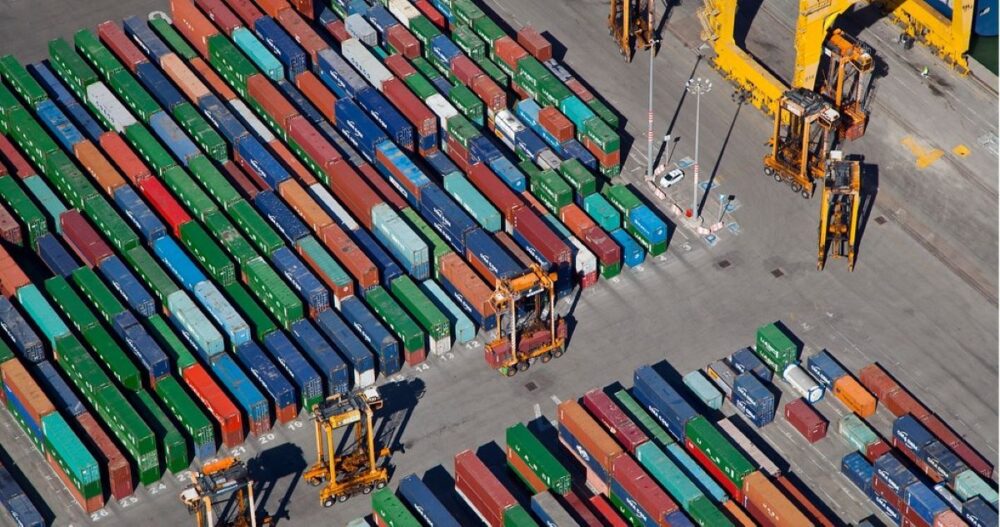 The first call for Ports 4.0 received 520 innovative proposals. (Port de Barcelona)
The first call for Ports 4.0 received 520 innovative proposals. (Port de Barcelona)
Ports 4.0 revolutionizes port innovation: more than 500 projects in the first call
The first call for Ports 4.0, the program which finances innovation in Spain’s port network, coordinated by the Spanish Port System, has completed the reception of proposals and the first conclusions can now be drawn. José Llorca, Head of Innovation in the Spanish Ports System, assesses for PierNext this first edition, ahead of the announcement of the selected projects which will take place at the end of January 2021.
 The first call for Ports 4.0 received 520 innovative proposals. (Port de Barcelona)
The first call for Ports 4.0 received 520 innovative proposals. (Port de Barcelona)
A total of 520 technology-based solutions to promote the transformation of the Spanish logistics-port sector. This is the number of proposals registered in the first call for Ports 4.0, which has a budget of 12 million euros in grants to finance the development and implementation of the winning projects.
The applications had to respond to the challenges posed after an analysis process carried out with the main players in the logistics sector, which detected the areas to improve and with the potential to implement innovation: digitalization, security, environmental protection, efficiency and decarbonization.
“Internally, there have always been innovation proposals to materialize the digital transformation or incorporate new technologies within the organization itself, but the great difference of Ports 4.0 is that, in addition to the entire port community, it also involves the private sector so the technology change occurs thanks to the open innovation processes,” explains José Llorca, Head of Innovation in the Spanish Ports System.
Llorca values very positively the acknowledgement of the program and targets the viability of launching these initiatives, which are distinguished according to their degree of technological maturity or TRL (Technology Readiness Levels): up to a TRL 3 is considered an idea; from a TRL 3 it belongs to a pre-commercial phase; and if it reaches a TRL 7, it already enters the commercial phase. Of the total solutions presented, 160 belong to the Ideas category and 360 to the Projects category, of which 60% are pre-commercial and the remaining 40%, commercial.
“In addition, nine projects have been put forward by the personnel who work in the Port Authorities. In a global context, it seems like a small number, but one of the objectives of the program was to encourage this internal participation, ” highlights Llorca.
The projects presented had to respond to challenges in the following areas: digitization, security, environmental protection, efficiency and decarbonization
Ports 4.0
Strengthening public-private ties
The fact that the first edition of Ports 4.0 is held in 2020 indicates that there is a paradigm shift in the relationship between Port Authorities and start-ups or technology companies. For Llorca, this metamorphosis is explained, first, from the point of view of entrepreneurs, who now see in port logistics as “a sector full of opportunities, with great business potential where they can develop products and applications with the technologies they dominate and which opens up a very interesting field for them to escalate and mature. ”
Secondly, the port authorities themselves and other agents in the sector have realized that in order to gain competitiveness they have to start considering digital transformation and the incorporation of new technologies very seriously. “Ports 4.0 has enabled the contact between the two, since a TRL 7 obliges to create a prototype in a real environment. All entrepreneurs interested in the call have had close contacts with businessmen in the port and logistics sector, and with the port authorities. It has been a very interesting contact mechanism to progress in this direction,” José Llorca celebrates.
To implement these innovations in the ports, an investment of up to 60% of the costs associated with the innovation component for projects in the pre-commercial phase has been budgeted, with a limit of one million euros. For more mature projects, the aid rises to 80% of the costs, up to a maximum of two million euros. Regarding the viability or possibility of scaling prototypes, Llorca affirms that since they are public subsidies, they will study the guarantee of success, despite the fact that this, regardless of redundancy, cannot always be guaranteed.
“Every innovation process has many failures, but we try to ensure that entrepreneurs can go through that phase where nobody supports their idea and, therefore, they have not been able to demonstrate its scalability because it has to be validated in real environments. Another important element is that all projects must be market-driven once they have been validated. If this is not achieved, we will have to continue working in this direction, ” he explains.
The innovation of the future
Regarding the typology of the projects presented, logistics efficiency in the infrastructural, operational or service provision areas is the aim of 22% of the projects received, followed by the digitalization of smart processes and platforms (21%) and environmental sustainability and energy (20%). Regarding the technologies used to develop the projects, information and communication technologies (16%), artificial intelligence and machine learning (15%) and process automation (14%) stand out.
Once the admission phase is over, a technical committee made up of the heads of innovation of the port authorities and a committee of experts will be in charge of evaluating the projects. The results will be announced at the end of January.
Regarding the future, José Llorca believes that Ports 4.0 represents an opportunity to continue strengthening ties between public and private companies and envisions various scenarios on how to make it possible. “One possibility is to include a venture capital fund precisely in the last stages of the entrepreneurship, starting with a TRL 7, and to raise resources for a market launch in line with what the European Innovation Council proposes, which considers that from a TRL 8 it is better to replace the grant system with an equity participation. And vice versa, it would empower companies in the sector that need capital to apply this transformation to be able to achieve it through venture capital funds,” he advances
For now, Llorca shows its satisfaction with this first call and believes that the port authorities will continue working to promote technological change with the complicity of local companies and entrepreneurs.

JOSÉ LLORCA ORTEGA, INNOVATION MANAGER OF PORTS OF THE STATE AND OF THE PORTS 4.0 FUND
Civil Engineer from the Polytechnic University of Catalonia
He has been President of the Spanish Port System from 2012 to 2018 and 2000 to 2004.
He is in possession of the Medal of Naval Merit and the Medal of Honor from the College of Roads, Channels and Ports.





